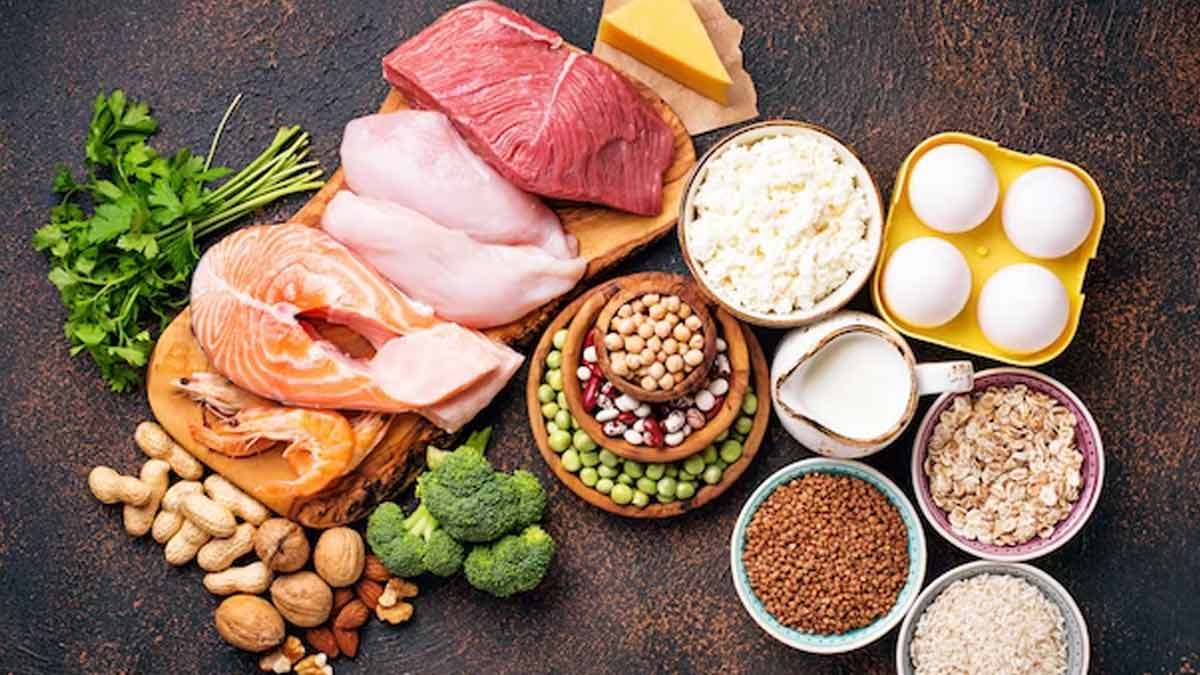
Our body requires sufficient nutrients and macronutrients to function effectively. Any type of deficiency can result in low energy and a weakened immune system. It is important to include protein in our diet as it is essential for building and repairing tissues, supporting muscle growth, regulating hormones and enzymes, boosting immune function, and providing a feeling of satiety while aiding weight management. But how do we know whether you lack protein in your diet? Speaking with the OnlyMyHealth team, Dr Vandana Juneja, Expert Goqii Coach, Physiotherapy, Diet, and Fitness Expert, shares necessary information.
Table of Content:-
Also Read: Can You Eat Carbs If You Have Diabetes? Expert Answers
What Is Protein Deficiency?

Protein deficiency is a condition that occurs when a person does not consume adequate amount of protein to meet his/her body requirements, said Dr Juneja, emphasising on the importance of protein in promoting growth, repair, and maintenance of tissues, as well as the production of enzymes, hormones, and antibodies.
According to a review published in the Annals of the New York Academy of Sciences, an estimated 100 crore people suffer from inadequate protein intake worldwide.
Signs You Need More Protein In Your Diet

When your body lacks an adequate amount of protein, it causes certain signs and symptoms. These include:
- Muscle weakness, decreased muscle mass, and muscle atrophy
- Edema/Swelling, particularly in the legs, feet, and abdomen
- Slowed growth and development, especially in children
- Weakened immune system
- Fatigue, weakness, and general lack of energy
- Thin, brittle, or colourless hair
- Dry, flaky skin that is prone to infections
- Brittle nails that are easily breakable
Food Sources Of Protein

Here are protein-rich foods for non-vegetarians, vegetarians, and vegans:
Non-Vegetarian Protein Sources
- Chicken breast
- Turkey breast
- Fish
- Shellfish
- Eggs
- Dairy products
Also Read: Is It Safe To Exercise On An Empty Stomach? Expert Weighs In
Vegetarian Protein Sources
- Lentils
- Chickpeas
- Black beans
- Kidney beans
- Quinoa
- Curd
- Yogurt
- Cottage cheese
Vegan Protein Sources
All vegetarian foods that are not dairy products can be consumed. Vegan foods are usually plant-based.
- Tofu
- Spirulina
- Hemp seeds
- Chia seeds
- Plant-based protein powders (Sattu, pea protein, soy protein, or rice protein)
According to Dr Juneja, incorporating a variety of protein sources into your diet, in each major meal, can help ensure that you get all the essential amino acids your body needs and avoid protein deficiency.
Also watch this video
How we keep this article up to date:
We work with experts and keep a close eye on the latest in health and wellness. Whenever there is a new research or helpful information, we update our articles with accurate and useful advice.
Current Version
